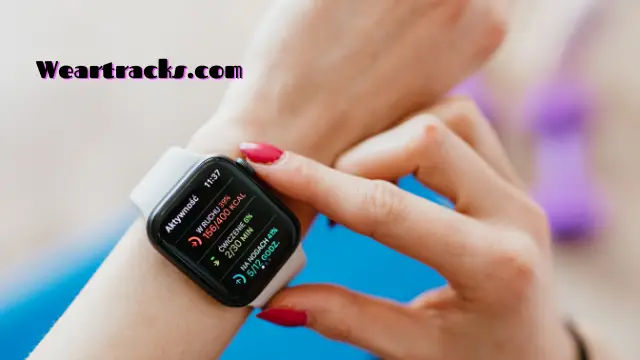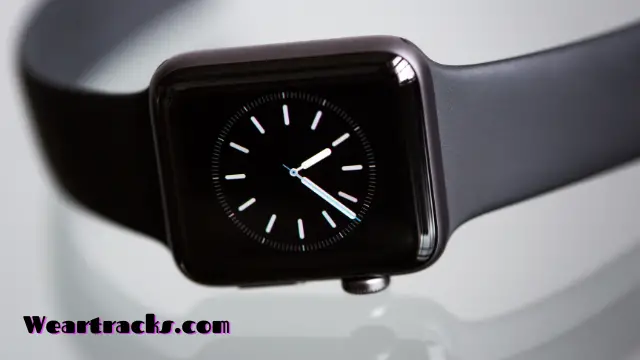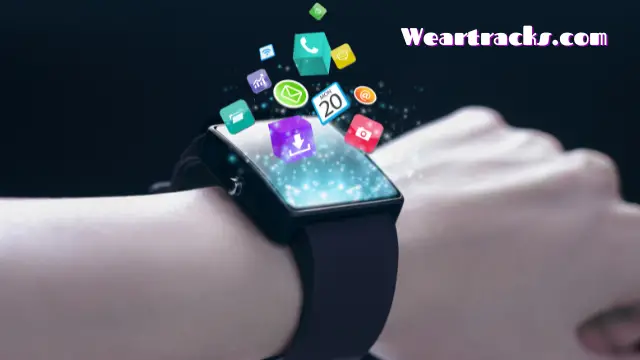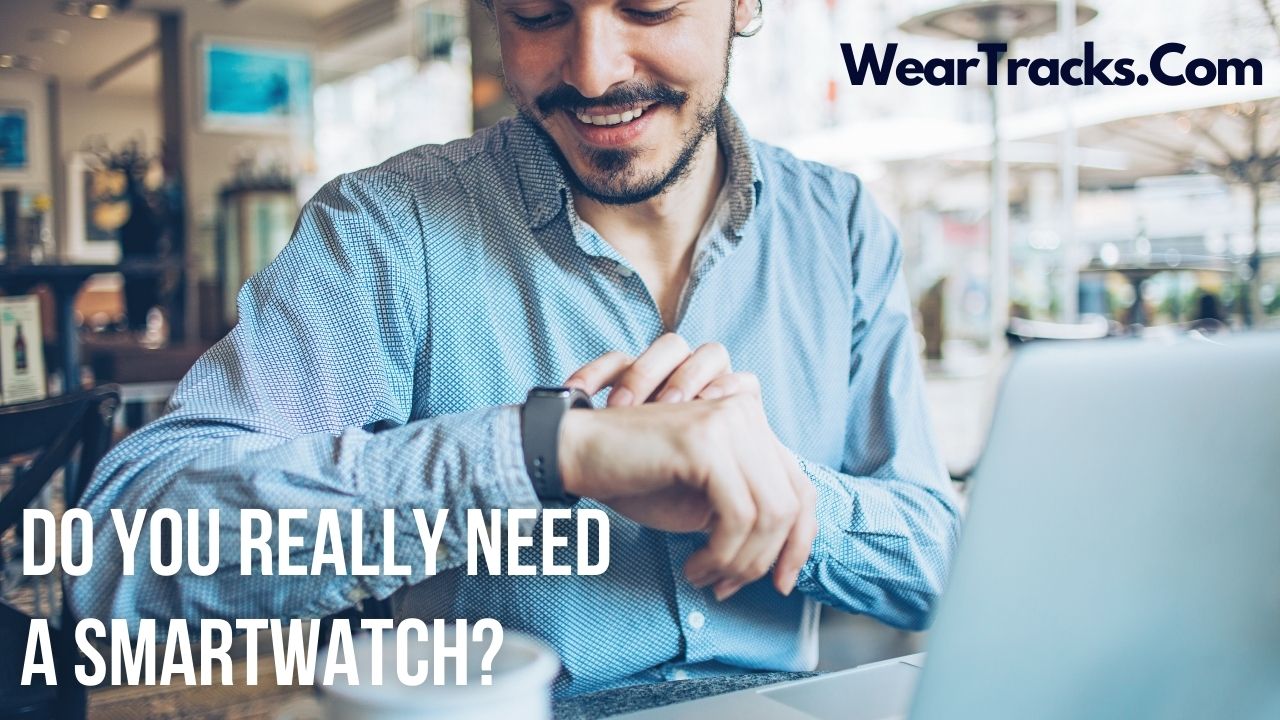Are you considering buying a smartwatch? Whether for business purposes or personal use, you must consider its features before making a decision.
There are two main types of smartwatches: ones that track activity and those that monitor heart rate.
Here is a related article that might interest you on Do SmartWatches Have Side Effects?
A smartwatch is a convenient way to keep track of your activity, but the question is: Do you really need one? And do you really need a smartwatch for cycling or running?
Do You Need A Smartwatch?

You may ask yourself: Do you really need a smartwatch to track your workouts? While many wearable devices offer basic activity tracking features like steps, distance, and heart rate, they can’t perform GPS location tracking without a smartphone.
A smartwatch’s most important feature is its ability to compliment your smartphone. However, the main drawback is its high price tag: a smartwatch can run you $349.
If you want a smartwatch that functions like a smartphone, it’s best to start with a model that has built-in GPS functionality. Most models need a recharge every day or two.
However, the most advanced features and the latest technology will likely cost you a few hundred dollars. While the initial investment is reasonable, smartwatches are a poor value compared to smartphones.
Even mid-range smartphones offer better functionality and larger screens, and many even feature built-in cameras.
The advantages of smartwatches are many, including the ability to track sleep and workouts, to receive notifications, and to keep track of your location on a map.
But there are also disadvantages. If you use a smartwatch during the day, it might distract you. In such a case, you can silence the device or block notifications.
However, these features aren’t worth the downsides of a smartwatch, and they’re not ideal for everyone.
Do Kids Really Need A Smartwatch?

The benefits of a smartwatch for kids outweigh the drawbacks. Many of these gadgets feature GPS, phone calls, and text messaging capabilities, and they often come with parental control software.
Parents can designate a contact person on the child’s watch, track their location, and set up alerts for when they leave a certain area.
Many smartwatches have their own designated phone number, which can be transferred to a standard cell phone if needed.
However, these devices are still far from perfect for kids. While they’re useful for communicating with parents, they are not designed for extended conversations.
For one, there’s no keyboard, and the small screen makes meaningful text conversations difficult. Moreover, most kids smartwatches are limited to one contact at a time.
Even though they may have fun features, they’re not the best option for parents who are concerned about their kids’ safety.
A smartwatch for kids can offer a middle ground between complete smartphone independence and no personal tech. Kids can contact you if needed and even make calls and texts.
Parents need to be cautious when letting their kids use smartwatches because they can easily lose them, and it’s not a good idea to let them spend all day on their phone.
However, a smartwatch for kids can be an affordable, safe, and convenient option that meets both expectations.
Are Smartwatches Worth It?

The primary function of a smartwatch is to tell the time, but it can also function as a useful fashion accessory. To make the most of your purchase, consider which features you need from it.
Some smartwatches are useful for translating foreign languages and others provide touch-screen capabilities. Some even have games built-in.
While it can be tricky to find one that is the perfect fit, these devices are definitely worth the cost.
If you’re not an athlete, frequent traveler, or manager with a lot of notifications, you probably don’t need a smartwatch. If you’re not in a position to use the smartwatch for business. You probably aren’t interested in buying one.
And, you’re probably not interested in buying one because you find it trendy, but because it’s important to your lifestyle. A smartwatch can be convenient if you don’t carry a smartphone all the time.
The price tag is high compared to other technology, and smartwatches don’t perform all the tasks they are advertised to do. In fact, many of them are useless without a smartphone.
Even if they can do all of these things, they won’t translate foreign languages. Another downside is the battery life.
Many smartwatches come with touch screens, which make them more appealing to children than to adults. Even better, they can help you silence notifications.
Do You Need a Smartwatch For Running or Cycling?

Having a smartwatch on your wrist is not a necessary part of running and cycling. You can record your heart rate and distance using your phone.
However, if you are a beginner and don’t want to purchase a smartwatch, you can simply use your phone to keep track of your distance, pace, and calories burned.
Many smartphone apps also allow you to keep track of your heart rate and distance.
Some of the more feature-rich smartwatches have poor battery life. The Apple Watch, for instance, can last only about 24 hours before needing to be recharged.
Samsung smartwatches, on the other hand, can last up to six days between charges. The Sony Versa 3 is less capable than the Apple Watch but has a longer battery life.
Smartwatches in this price range are also more useful for tracking your activities than they are for tracking steps or distance.
If you’re considering a smartwatch for running and cycling, you’ll first want to consider its battery life. While most smartwatches can last for five hours or less while tracking GPS, that’s not enough for a full marathon.
Even if your workout is only a couple of hours, a smartwatch that can track for up to 100 hours could be overkill if you’re just looking to run a 5K weekend.
Do Smartwatches Really Help Improve Your Work?

While they may look like gimmicks, smartwatches have a practical application in the workplace. For example, they can help workers keep track of expenses, as well as identify pending bills.
If a worker is at a restaurant, he or she can use the watch to calculate the tip. And if the worker is in the field, a smartwatch can notify the nearest hospital or family member of an emergency.
When it comes to efficiency, smartwatches are not only fun to wear, but they are also an invaluable business tool. They can manage a wide variety of tasks for employees or business owners, like taking notes or managing notifications.
Besides being useful for keeping track of tasks, smartwatches are also loaded with productivity applications that can help users stay organized and manage their time. Despite their obvious convenience, smartwatches are still a bit pricey, and there are no guarantees of their value.
Although smartwatches are becoming increasingly popular, many still wonder whether they actually help workers improve their work.
While they are great for completing everyday tasks, some argue that they can actually harm your mental health and productivity.
That said, many smartwatches do not include sim card slots and require a smartphone app to operate. The screen quality on a smartwatch is still pretty good, but they have limitations due to their form factor.
Is A Smart Watch A Need Of This Decade?

Smartwatches have become more than mere fitness trackers. Some even include GPS and heart rate monitors, which can greatly impact battery life.
Some also include ECG (electrocardiogram) sensors and others track your SpO2 levels to help detect respiratory conditions and sleep apnea. However, there is an existential question about these watches: Are they a necessity?
In general, most smartwatches track basic fitness and activity data. They can even pay for lunchtime drinks. Only the Garmin Lily does GPS tracking.
Most smartwatches also feature optical heart rate sensors. But these features are limited compared to the convenience and safety these devices bring. And while they are a must-have for active people, they may not be right for everyone.
A smart watch is a great tool for keeping track of important data. You can check the time and date on your wrist in real time and set reminders for important dates.
The device also tracks your sleep, and reminds you when to eat or drink. Those who wear smartwatches are more likely to track their health and fitness than anyone else.
Smartwatches are becoming so popular in the world of sports and fitness that the number of devices supporting them increases.
Huge Advantages Of Having A SmartWatch

One of the biggest advantages of having a smartwatch is its ability to act as a backup phone. Smartwatches can receive and respond to calls and messages while you’re out and about, or even pick up a call. Some smartwatches can even work as a standalone phone.
While there are some concerns about battery life, smartwatches are generally quite reliable. Here are some other advantages of having a smartwatch.
A smartwatch can track the quality of sleep a user gets. Some models can even monitor a person’s blood oxygen levels, which can reveal the onset of sleep apnea.
Smartwatches also provide many other functions beyond keeping track of calories burned and sleep quality. The smartwatch’s connectivity allows it to display various notifications, including incoming messages, emails, and social media updates.
Smartphones have a multitude of features that make them useful for a variety of situations. Smartphones come with built-in mobile payment apps.
Most smartwatches are compatible with Google Pay, making it easy to make payments from the comfort of your wrist. However, some smartwatches can be bulky and difficult to use without a smart phone. These disadvantages mean that smartwatches may not be suitable for everyone.
Conclusion
The market for smartwatches is growing, but the quality of their assistance is not yet up to par with that of smartphones. The lack of a benchmark device or strong lineage has made the concept of a smartwatch a tough sell. One example is the Motorola MOTOACTV, which was a decent smartwatch but was largely ignored by consumers.
Manufacturers are trying to make smartwatches better, but many have had limited success. Interestingly, Google has been developing its own wearable, Google Glass. Which is intended to connect people with information.
The main difference between smartwatches and smartphones is their form factor. Smartwatches are designed to be worn for long periods of time.
They provide access to important healthcare information. Their proximity to the wearer makes them a perfect extension of a smartphone.
The watch’s sensors can collect data about one’s health from the wearer’s skin. Physiological information may be useful in assessing the health of a patient.

